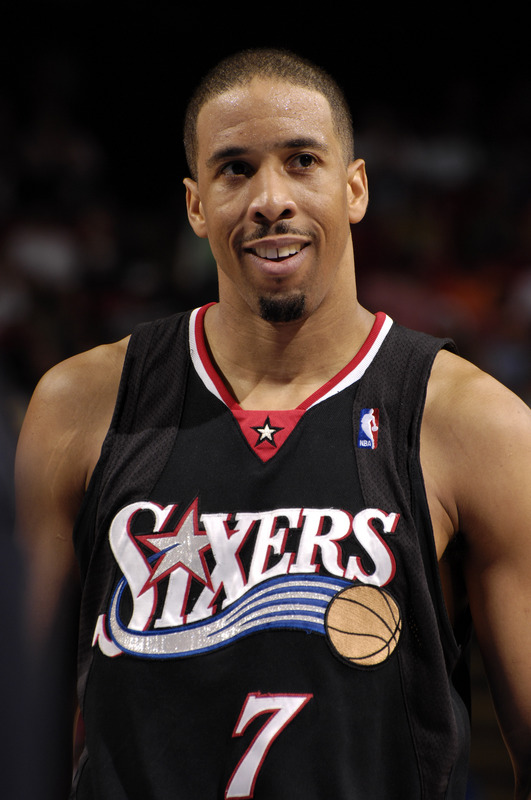
With Al Jefferson's $42 million now on Utah's books, the possibility of matching the Blazers offer for Wesley Matthews (pictured) slimmed.
Minnesota Timberwolves power forward Al Jefferson and the remaining three years and $42 million left on his contract are headed to the Utah Jazz in exchange for picks, center Kosta Koufos, and salary-cap relief. Taking on his contract puts the Jazz into the luxury tax, which hinders their ability to match the Portland Trail Blazers 5-year, $34 million offer to 23-year old shooting guard Wesley Matthews.
Utah needs Matthews, but can’t afford him at that price; especially since they need to keep center Kyrylo Fesenko, which puts them even deeper into luxury tax. They lost shooting guard Kyle Korver to the Chicago Bulls earlier this offseason, so losing two shooters depletes them drastically. Korver was a spot-up shooter, and a very good one at that. He was particularly valuable from beyond the arc, helping spread the floor adequately. Matthews contrasted Korver well as a scrappy defender with a versatile offensive game.
I like what Matthews brings to the table. I don’t like the money thrown at him. He showed a lot in his first season. Jerry Sloan moved him into the starter’s role late in the season, which says a lot about his impact. He contained Carmelo Anthony and Kobe Bryant in the playoffs. There’s a lot for Portland to be impressed about. And thinking of him alongside Nicolas Batum in some lineups as well as spelling him makes me ecstatic. What that combo could do for Portland’s defense would undoubtedly strike fear into any opponent’s heart.
He won’t start with the Blazers as long as Batum and Brandon Roy are with the team. But though vastly overpaid, he will be a terrific backup if indeed the Jazz do not match. And if Roy re-injures his hamstring or Batum tweaks his shoulder–god forbid–Matthews could bring Roy’s scoring punch to the table as well as Batum’s defense. If Matthews does become a Blazer, it’s a perfect match.
What would his signing mean for others on the roster, though? Adding him would make Rudy Fernandez expendable. Fernandez deserves minutes, but he wouldn’t get them with Matthews in the fold. I’d rather see him traded than play 10 minutes a night. If Portland wished, they could package him, Miller, and Joel Przybilla’s expiring contract for Chris Paul, if New Orleans was up to it. Portland could toss Bayless in the deal as sweetener. Paul is thought to be unhappy. New head coach Monty Williams wants him to stick around. But if the Hornets want to start the Darren Collison Era and get a solid return for him, Portland could be a good trade partner.
The point of putting that proposal out there is to make known the Blazers desire to acquire an elite point guard. Miller is, in my eyes, satisfying enough running the show, but it appears Portland’s front office thinks otherwise.
Fernandez will be moved if Matthews signs. There is no doubt about that in my mind. But, whether Miller is traded or not, I believe the Blazers will continue to be active during the rest of this offseason. They have a logjam at point guard. Five point guards are currently under contract. The final roster spot will most likely go to Johnson or Mills. That will dwindle the depth down the four. But teams don’t need four point guards. So I could conceivably see two of them being moved. Could Miller and Bayless be on their way out? Then Johnson waived if they want to acquire a PG for Miller and Bayless? Could Mills, Williams, and Paul make the roster? Who knows, but something has to be done. To keep four would be unfair to those that could get a chance elsewhere.
So why do I delve into the point guard conundrum? Because the enviable depth means Matthews deal could be the first of many more moves to come. Fernandez could be traded by his lonesome, but my guess is that Portland would like to do a package deal. And they certainly have the excess talent to put something pivotal together.
Even if their moves are minimal after Matthews, his signing is a tremendous one. He will be paid too much, but in time he could live up to that contract. Teams that have won NBA titles have done so in part because of a bench capable of making a astronomical impact. Portland’s bench will be bolstered by the complete package he will bring–the incorporation of aggression, defensive intensity, and a smooth shooting stroke.

